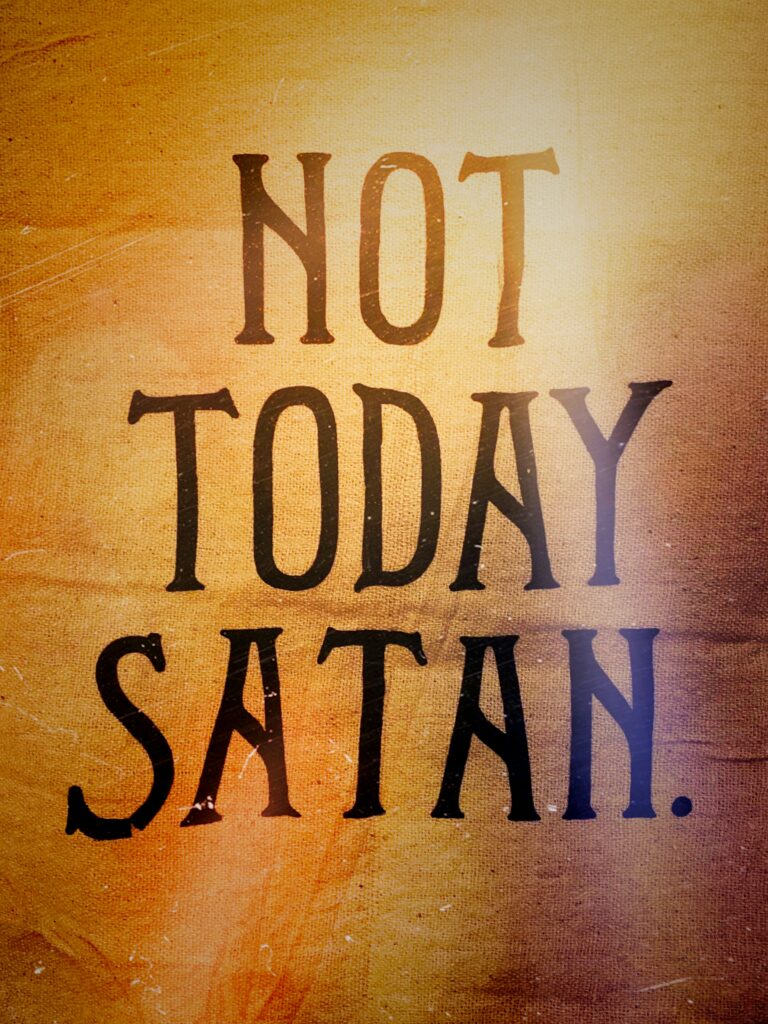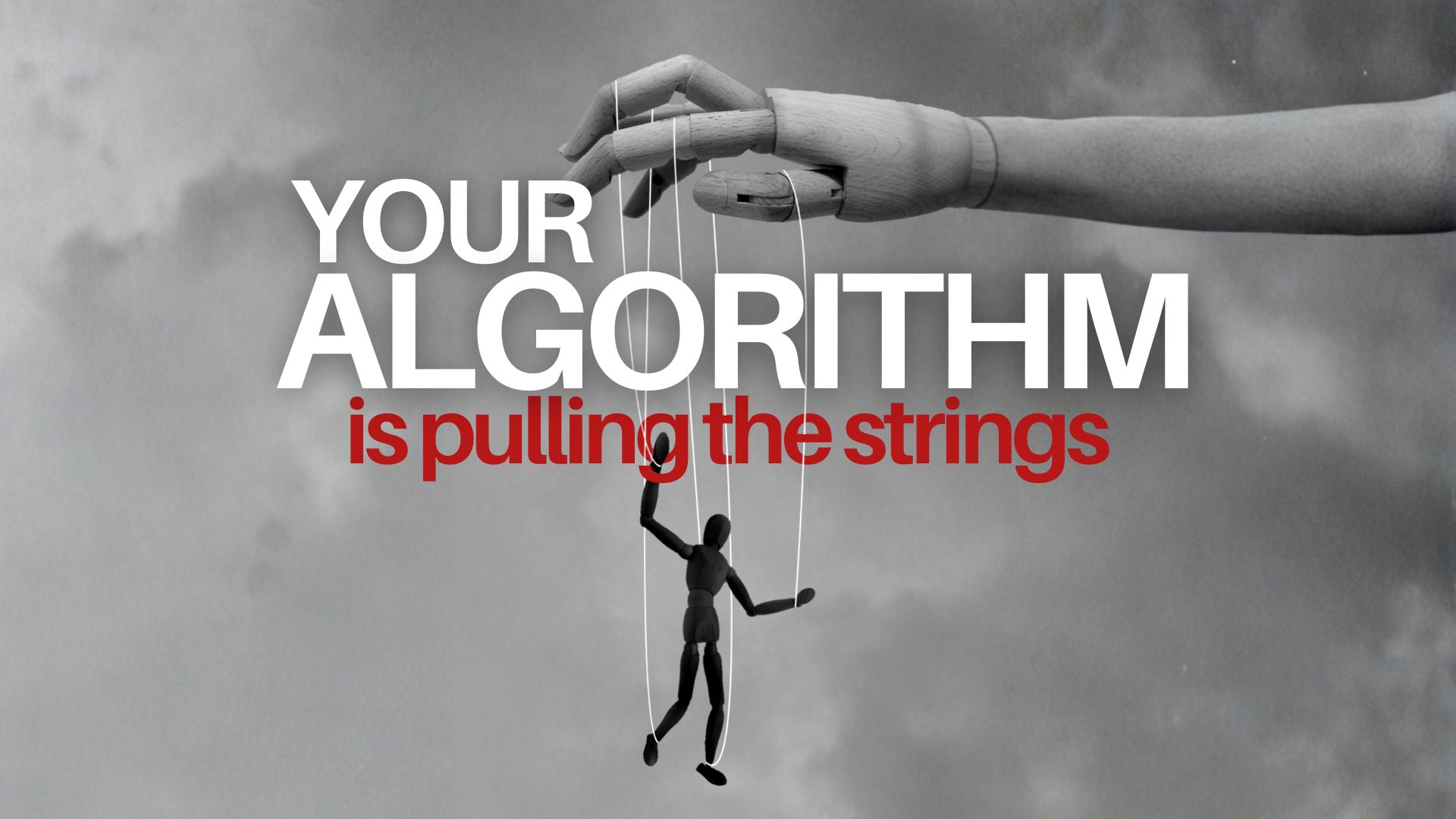I Won’t Endorse a Candidate. Here’s Why That Matters Right Now
Let me start with this: I don’t have it all figured out. I’ve made mistakes. I’ve wrestled with these questions deeply. And I still have friends, mentors, and people I respect who land in different places. I’m not writing this because I’ve arrived. I’m writing this because I’m convicted, and because I care.
The timing couldn’t be more Spirit-led. My next sermon explores one of the most revolutionary truths in all of Scripture:
“There is neither Jew nor Greek, there is neither slave nor free, there is neither male nor female; for you are all one in Christ Jesus.” —Galatians 3:28 (NASB 2020)
We are one in Christ. Not based on background, behavior, or even political opinion, but through the Spirit.
Yet even as I write this, headlines are making waves. The IRS recently shifted its stance, now allowing pastors and churches to publicly endorse political candidates without risking their tax-exempt status. [1,2]
Some see this as freedom. I see it as a crossroads.
If you’re wrestling with how to live faithfully in a divided world, check out Different Gospel: 7 Alarming Signs You’re Following One and What To Do.
Can We Endorse Candidates Without Losing Our Witness?
According to the IRS and recent coverage from Relevant Magazine and NPR, pastors now have the legal green light to endorse political candidates from the pulpit without financial penalty. But here’s the better question:
Just because we can, should we?
If our allegiance is to the Lamb, not the elephant or the donkey, then the answer for me is clear.
I won’t endorse a candidate, because I believe the gospel calls us to something deeper than partisanship: oneness.
If you disagree with that…I love you. If you are Christian and you are excited to endorse a candidate from the pulpit, I will still work with you, minister with you, and pray with you. Because the unity of the Spirit matters more.
1. The Gospel Doesn’t Need Political Backup
Galatians 3:13–14 says Christ redeemed us from the curse of the Law, becoming a curse for us so that the blessing of Abraham could come to the Gentiles, and we could receive the promise of the Spirit through faith.
At the core of the gospel is this unshakable truth: Jesus did what no law, government, or political system could ever do. He took on the curse of sin, fulfilled the Law, and made a way for all nations to receive the blessing promised to Abraham; through faith, not merit.
This is Kingdom theology. It’s the reality that Jesus didn’t come to take sides. He came to take over. He didn’t enter the world to tweak systems. He came to usher in an entirely different order, a Kingdom not of this world.
And this Kingdom doesn’t need political backup.
When we align the gospel with a political party or endorse a candidate “for the sake of the gospel,” we are saying, even subtly, “Jesus needs help.” That the Kingdom of God can be advanced through voting booths, campaign slogans, and partisan power. But Jesus never needed Caesar’s throne to change the world. He did it from a Roman cross.
In Kingdom theology, our primary citizenship is not national, it’s heavenly. Philippians 3:20 reminds us that “our citizenship is in heaven.” That’s not a metaphor. That’s a reordering of identity. It means we live under a different constitution. We serve a different King. We embody a different ethic.
To suggest that endorsing a candidate is part of our Christian duty is to flatten the gospel into a tool for political gain, rather than proclaiming it as the announcement of a new reign, Christ’s reign.
I won’t endorse a candidate because the Kingdom of God is not up for election. It’s already here. It’s advancing. And it advances not through coercion, but through love. Not through control, but through surrender. Not through laws, but through hearts transformed by grace.
The cross is not a political symbol. It’s a throne. And Jesus already occupies it.
I’ve Gotten This Wrong Before
I used to think staying out of politics entirely was the holiest path. But I’ve come to see that Kingdom citizenship doesn’t mean political silence, it means political sobriety. I do believe we’re called to vote. To participate. And yes, for some, even to run for office.
But what we are not called to do is turn political alignment into a litmus test for belonging in the Church. I’ve seen that happen. I’ve felt the pull. And I’ve repented. Because in Christ, we are one, not because we vote alike, but because we’ve been raised to new life together.
2. Division Feels Good, Until the Hangover Hits
Culture is drunk on division.
someone smart
It’s everywhere, on your feed, in your family, maybe in your church. The intoxication starts subtly. Taking a side feels like taking a stand. There’s an emotional high in knowing you’re “right,” part of the tribe, standing against the “other side.” But like all artificial highs, it wears off. And when it does, the hangover begins.
Division always overpromises and underdelivers. It lures us with identity and clarity but leaves us with cynicism, mistrust, and spiritual fatigue. The more we indulge in division, the more addicted we become to outrage. And the more addicted we are to outrage, the less capacity we have for grace, nuance, or unity.
But the Kingdom of God is sober-minded. It calls us not to tribalism but to transformation. Paul urges believers to “Be alert and of a sober mind (1 Peter 5:8), which is Kingdom language for clarity, humility, and watchfulness. The gospel doesn’t feed our need to win, it heals our obsession with sides.
When we divide over candidates, parties, or politics, we often mask it as conviction. But if our “conviction” leads us to treat brothers and sisters as enemies, it’s not the Holy Spirit leading us, it’s the flesh. And it leads us straight into confusion, which is the enemy’s playground.
Kingdom people must refuse to be discipled by algorithms and echo chambers. We must reject the lie that power, protection, or clarity come from choosing the right camp. We already belong to a Kingdom not built on camps but on the cornerstone; Christ Himself.
I won’t endorse a candidate because I refuse to keep sipping what the culture is pouring. Unity in the Spirit is better than any moment of political intoxication. I would rather be clear-headed in Christ than carried away by the high of partisanship.
The Kingdom doesn’t ask, “What side are you on?”
It asks, “Are you submitted to the King?”
I’ve Gotten This Wrong Before
I’ve been there. I’ve taken up the fight for Biblical truth in ways that, while sincere, unintentionally alienated people. I thought I was defending righteousness, but what I ended up building was a wall, not a bridge. And when the dust settled, I was left with a crowd that maybe agreed with me on a Biblical issue, but was still bitter, angry, and deeply divided in spirit.
What I realized was this: winning the argument isn’t the same as embodying the gospel. I had focused on clarity but led people to lose compassion. I had spoken truth but didn’t lead people to grace. The result? Division.
Now I see that if the truth I speak doesn’t carry the fruit of the Spirit, I need to check whether it’s actually being led by the Spirit. And if I speak in ways that fracture the Body, even unintentionally, I’m out of step with the unity Christ prayed for in John 17.
I’ve repented for that. And this is part of why I won’t endorse a candidate, not because I’ve stopped caring about truth, but because I care more deeply now about how truth is lived, spoken, and received within the Body of Christ.
3. Endorsement Risks: Sacrificing Unity for Influence
In our culture, influence is currency. And during election cycles, it’s tempting to think that endorsing a candidate is the boldest, clearest way to “use your platform” for God. But if that endorsement comes at the cost of unity in the Church, it’s not Kingdom influence, it’s compromised influence.
Kingdom influence isn’t measured by visibility or political clout. It’s measured by faithfulness to Jesus and the fruit of unity it produces. Jesus didn’t use His voice to elevate a party. He used His life to unite people who would never naturally belong together, tax collectors and zealots, Jews and Gentiles, men and women, the rich and the rejected.
When you endorse a candidate, you may gain credibility with one group while simultaneously alienating another part of the Body. That isn’t harmless. That’s a fracture in the family Jesus died to unify.
I won’t endorse a candidate because I don’t want to influence people toward division, even by accident. I want my voice to lead people to Jesus, not to the aisle of a voting booth.
I’ve Gotten This Wrong Before
I’ve believed before that being influential meant being visible, taking sides, making bold public declarations. But I learned the hard way that true influence in the Kingdom is marked by what draws people together under Christ, not what pulls them apart in His name.
Sometimes the boldest thing you can do is stay rooted in humility and refuse to let your platform become a wedge in the Body of Christ.
4. Unity Is How the World Will Know Jesus Is Real
“May they all be one… so that the world may believe that You sent Me.”
Jesus made something radically clear in one of his final prayers: the credibility of the gospel is tied to the unity of His people. Not our political stances. Not our theological sharpness. Not our ability to “win the argument.” But our oneness.
That means every time we divide over politics, especially publicly, we risk making Jesus less believable to a watching world. Disunity muddies the message. It makes Jesus look like just another partisan figurehead. But when people see believers from radically different backgrounds, voting patterns, and life stories worshipping together in love, it’s disarming. It’s beautiful. It’s Kingdom.
I won’t endorse a candidate because I don’t want to compromise one of the things Jesus said would help the world believe He’s real: our unity.
I see no place in the world right now that is not divided. What a witness the church could be if we were one as the Father, the Son, and the Spirit were one.
I’ve Gotten This Wrong Before
I used to think that standing up for “truth” was always the most powerful witness. But there were times when my tone, my timing, and my pride fractured relationships and clouded the gospel I was trying to represent. I’ve had to unlearn the belief that boldness always equals fruitfulness.
Now I know: oneness is evangelism. When people see unity where there should be division, they don’t just see community, they see Jesus.
5. Unity Is Where God Commands His Blessing
“How good and pleasant it is when God’s people live together in unity… For there the Lord has commanded the blessing, life forever.” —Psalm 133:1, 3
We often ask God to bless our churches, our sermons, our influence, and our impact. But God already told us where His blessing flows, where His people are unified.
Psalm 133 doesn’t say blessing follows strategy, or visibility, or even passion. It says blessing flows where there is unity. Not uniformity, not agreement on every political issue, but spiritual unity in Christ.
When pastors endorse candidates, that unity is put at risk. Even if well-intended, it introduces division into the Body. People start to wonder: “Do I still belong here if I vote differently?” That’s not the question the gospel creates, that’s the question division creates.
I won’t endorse a candidate because I’d rather live under God’s commanded blessing than gain political clarity at the cost of spiritual disunity. If unity is where the blessing flows, then disunity dries the ground. And no sermon or strategy can fix that.
I’ve Gotten This Wrong Before
There have been times when I elevated certain issues or convictions so high that others felt excluded, not just from my conversation, but from the community. I didn’t mean to create that kind of spiritual climate, but I did. And it didn’t bring blessing. It brought tension, distrust, and exits.
I’ve repented for that. Now, I’m learning that protecting unity isn’t soft, it’s obedience. It’s spiritual. It’s the soil where God grows the most fruit.
6. Unity Is Spiritual Warfare
“Make every effort to keep the unity of the Spirit through the bond of peace.” —Ephesians 4:3
“If a house is divided against itself, that house will not be able to stand.”—Mark 3:25
Unity is not just about getting along. It is warfare. It’s resistance against the enemy’s oldest tactic: division. From the garden to the Church in Corinth, Satan has always used disunity to disrupt God’s plans, fracture relationships, and dilute witness.
Paul’s words in Ephesians 4 aren’t casual. “Make every effort” means unity is something we actively protect, guard, and fight for. It’s not just spiritual maturity, it’s spiritual defense.
The enemy doesn’t mind if we’re right on theology or loud in culture, as long as we’re divided. Because when we’re divided, our power is gone. Our testimony is weakened. And our fruit withers.

When churches publicly endorse candidates, they often open the door to division, not because everyone agrees or disagrees with the endorsement, but because it reframes the spiritual atmosphere into a political one. Suddenly, it’s us versus them. Trust erodes. Distraction sets in. And the enemy walks right in.
I won’t endorse a candidate because I refuse to help the enemy by weakening the Church from the inside. Unity isn’t passive. It’s armor. And I’m choosing to put it on.
I’ve Gotten This Wrong Before
There was a time when I underestimated how powerful division really is. I thought disagreement was just the cost of leadership. But I’ve seen how fast division spreads when unity isn’t guarded. I’ve watched people leave, not because of bad theology or broken relationships, but because of the spiritual tension that formed when politics crept into sacred spaces.
I’ve learned that the devil doesn’t need to destroy the Church, he just needs to divide it. I’m committed now to being part of the resistance. And in this Kingdom, peacemaking is warfare.
7. Unity Shows the World What Heaven Looks Like
“After these things I looked, and behold, a great multitude which no one could count, from every nation and all the tribes, peoples, and languages, standing before the throne and before the Lamb.” —Revelation 7:9 (NASB 2020)
Heaven will not be divided by political affiliation, race, citizenship, or ideology. It will be full of people from every tribe, language, and nation, united not by party or platform, but by the Lamb.
But here’s the tension: while heaven celebrates every tribe, our culture worships tribalism. We divide. We label. We sort people into categories that help us feel safe and superior. And too often, the Church mirrors this fractured model—especially when politics enter the picture.
We are meant to be a multi-tribal family, not a collection of ideological camps.
When we endorse a candidate, we risk reinforcing tribes of partisanship, rather than embodying the oneness of the Kingdom. That oneness is not erasure, it’s a miracle. It’s what happens when people who should be enemies become family around a shared Savior.
I won’t endorse a candidate because I want the Church to look more like Revelation 7 than a cable news panel. I want people to walk into a worship gathering and say, “How are all these people, so different in background, so diverse in thought, so united in spirit?”
That kind of unity doesn’t come from having the same tribe.
It comes from surrendering to the same King.
So What Now?
I know some will agree with me. Some will not. And that’s okay.
I’m not here to win everyone over. I’m here to stay faithful, to the gospel, to the Spirit, and to the unity Jesus prayed for.
I won’t endorse a candidate. Not because I’m trying to be neutral, but because I’m trying to be Kingdom-minded. Because I believe oneness is more powerful than partisanship, and Jesus is more compelling than any platform.
We don’t need more Christian endorsements.
We need more Christlike courage.
We need a Church that looks like heaven, not just our side of the aisle.
So whether you vote red, blue, independent, or none of the above…
You belong.
You’re my brother. You’re my sister.
And if you’re in Christ, then you’re in the family.
And in this house, the cross is our banner.
Not a flag. Not a party. Not a politician.
Just Jesus.
- Stay connected. Subscribe here for weekly reflections that help you live out your faith beyond the headlines, without losing your witness, or your soul.
- Pass the peace. If this challenged or encouraged you, forward it to someone who’s tired of choosing sides. Unity is contagious. Let’s start with you.





Leave a Reply